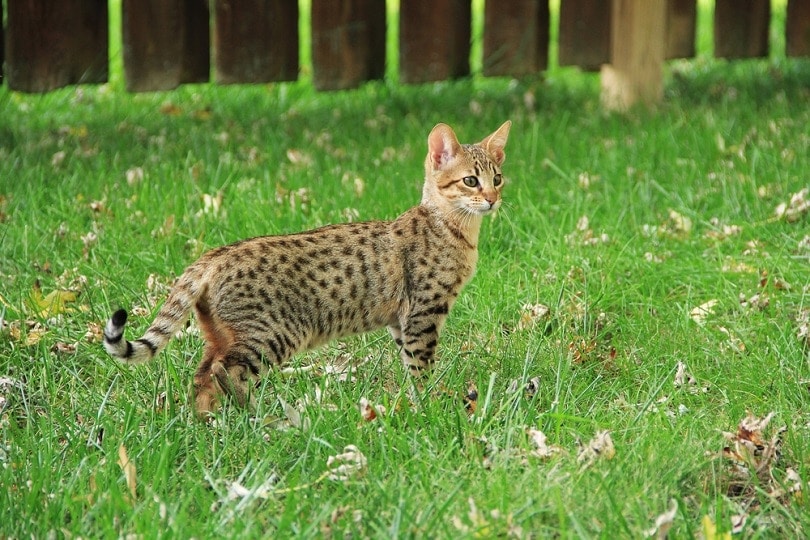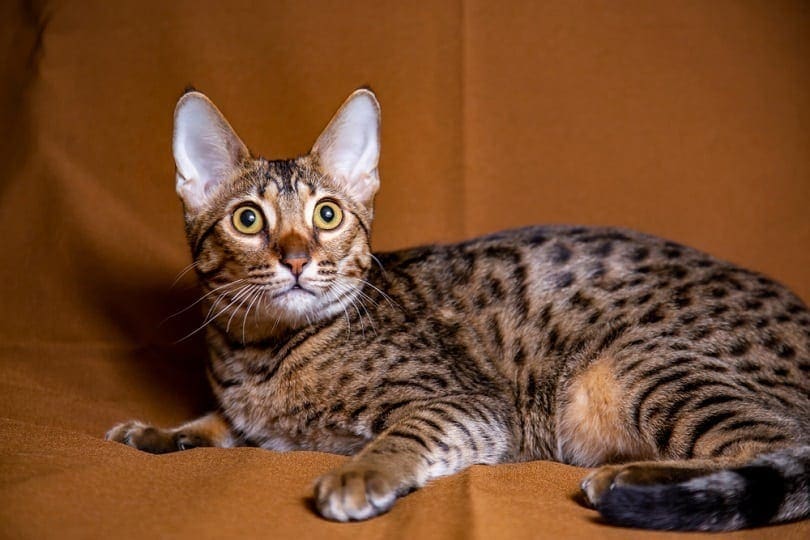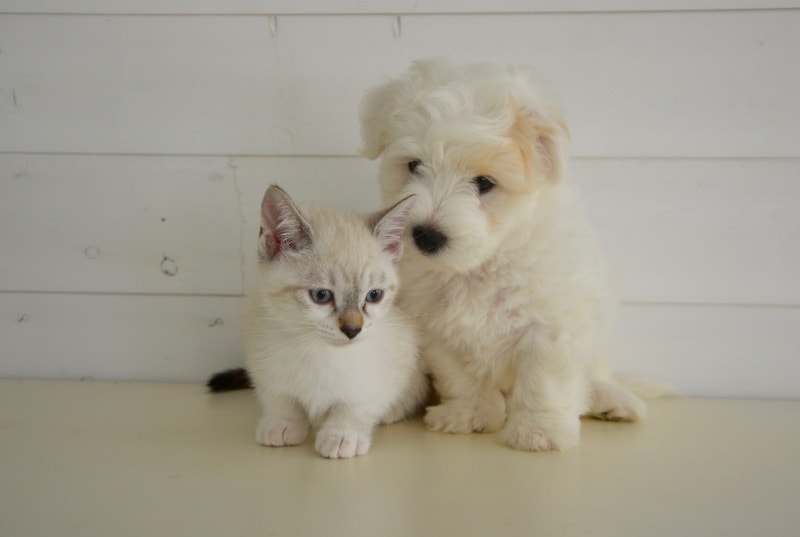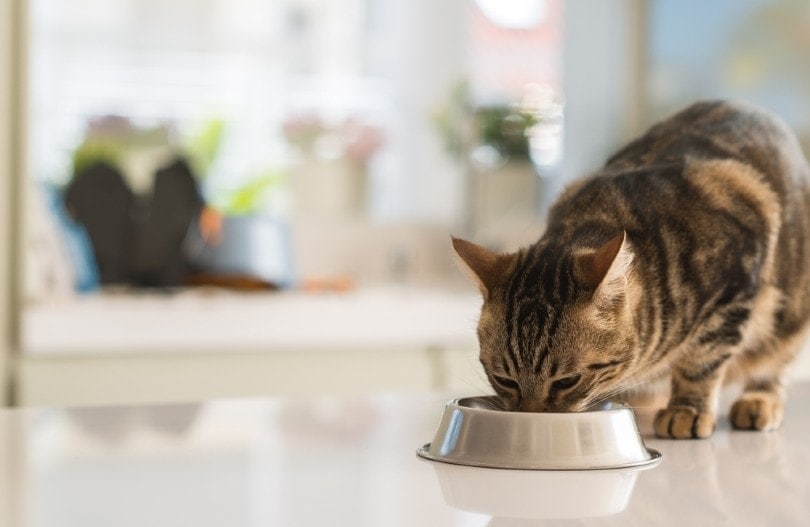5 Savannah Cat Health Problems: Vet Approved Treatments & Prevention Tips

Updated on

With gorgeous spotted coats and long, lean bodies, Savannah cats stand out. These cats are unusual because of their wild blood—they are a cross between a Serval and a house cat. Servals are much larger than house cats, so Savannah cats are the largest hybrid cats, sometimes weighing 30 pounds or more, and they can be high-energy and difficult pets.
However, most Savannah cats you see on the market have only a small amount of wild blood, so they’ll be that much closer to domestic cats. Their hybrid status still affects them, though, and Savannah cats can have some health differences from standard cats. Although they are a relatively healthy breed, here are five issues to watch out for.
The 5 Savannah Cat Health Problems
1. Hypertrophic Cardiomyopathy
Hypertrophic Cardiomyopathy is a disorder where the heart muscle becomes thickened. This means that the muscles can constrict blood flow through the heart and reduce its efficiency. Cats that have HCM can live their whole lives without showing symptoms, but they are at a higher risk of sudden heart failure. Other cats with this disorder might show mild symptoms such as labored breathing or elevated heart rates. Savannah cats have a slightly elevated risk of this disease.

HCM runs in families, but the exact genetic cause is still unknown. That means that responsible breeders can attempt to avoid breeding cats that have HCM in their pedigree, but it is hard to avoid entirely. An echocardiography exam can determine if a cat has HCM, and if diagnosed, medications can be given to reduce the risk of heart failure. Some breeds can have a genetic test for HCM also.
2. Male Sterility (Early Generations)
Just like other mammal hybrids, the offspring of servals and domestic cats can’t always reproduce. Male Savannah cats are sterile for at least four generations removed from the Serval ancestor. This means that breeders looking to establish new Savannah lines can only use hybrid males in their breeding. This is less likely to affect most Savannahs you can buy, as early generation Savannahs are much harder to care for and rarely sold, but some later generation males can also be sterile.
There’s not much you can do to treat hybrid male sterility, but the good news is that it won’t affect your cat’s quality of life. If you plan to breed Savannah cats, look for males who are at least four generations removed from a Serval ancestor and buy males with a good history of male fertility or that are already sexually mature.
3. Pyruvate Kinase Deficiency
Pyruvate Kinase is an enzyme found in red blood cells that they use to make energy to survive. Pyruvate kinase deficiency is an inherited problem resulting in red blood cells surviving for shorter times in circulation. The result is anemia.
A vet’s examination can help determine if your cat has pyruvate kinase deficiency anemia. There is a genetic test that can be done to look for the gene involved. Prevention is achieved by ensuring that the parents of your cat have tested negative for the gene. Cats are affected to varying degrees and may need intermittent treatment for anemia.
4. Taurine Deficiencies
Taurine is an amino acid found in meat sources. Although humans can synthesize their own taurine from plant matter, cats depend on taurine found in their food, especially organ meats, to stay healthy. That’s one reason why cats can’t eat a vegetarian diet to stay healthy. Taurine deficiencies can cause degenerating vision, heart issues, and a host of other disorders. Although cat foods in the US will always have enough taurine for most cats, Savannah cats can have slightly higher taurine requirements.

Many vets recommend putting Savannah cats on high-protein, taurine-supplemented diets to prevent taurine deficiency. Some owners prefer to use fresh food diets to boost taurine levels, but high-quality dry or canned food is sufficient as well. If a taurine deficiency does develop, supplements can reverse symptoms in the early stages. Because of that, regular monitoring is helpful for reducing the chances of permanent health loss.
5. Issues Inherited from Parent Breeds
Savannah cats aren’t pure wildcat, and their domestic ancestors have an impact on health as well. Some of the most common breeds in Savannah cats’ pedigree are Siamese, Egyptian Mau, and Abyssinian, but other breeds are common as well. When adopting a Savannah from a breeder, ask about your Savannah’s unique pedigree and any health problems that run in that line to get a better idea of what other health issues you might need to look out for.
Final Thoughts
Savannah cats are a healthy breed, but that doesn’t mean that they are free from all problems. These cats can bring a wild touch to our homes without the dangers and cruelties that come with owning a fully exotic cat. Owning a Savannah cat is not legal in all states, so be sure to check. They can be loving, happy companions that form strong bonds with their owners. By keeping an eye on the most common Savannah health problems, you can make sure that your cat lives a long, healthy life.
- See Also: How to Train a Savannah Cat
Featured Image Credit: Lindasj22, Shutterstock












